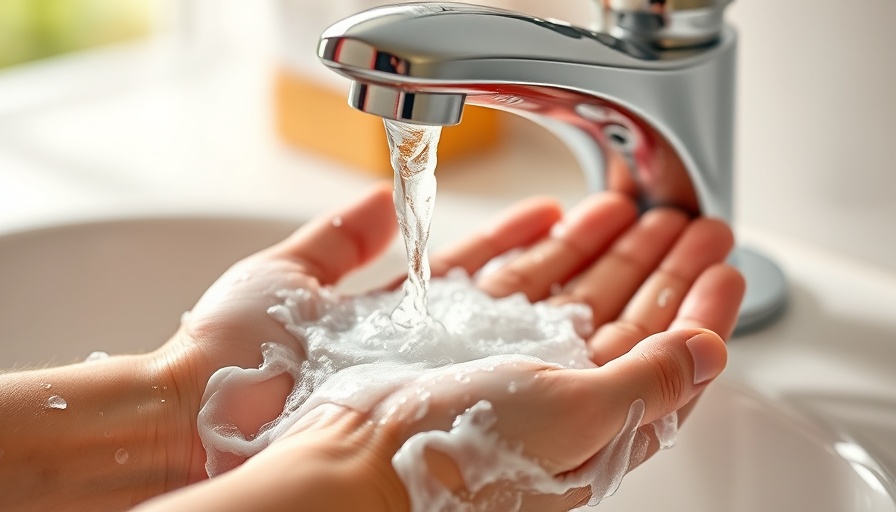
Understanding the Importance of Clean Hands
In our daily lives, hands are the most frequently used tools. From making meals to tackling home improvement projects, they pick up dirt, bacteria, and harmful substances that can impact our health and the quality of our work. Each time we touch surfaces like doorknobs, phones, or even soil while gardening, we harbor germs that can lead to illness or skin problems. Preventative health expert Dr. Bill Kapp emphasizes that washing hands correctly is vital not just for cooking or childcare but also when engaging in any DIY task. In fact, unclean hands can impede your work process, damaging surfaces and tools, and increasing the risk of skin irritations.
Why Proper Handwashing Techniques Lead to Better Health
The practice of washing hands isn’t just a matter of hygiene; it’s a cornerstone of maintaining our health. Dermatologists like Dr. Stephanie Taylor point out that improper handwashing can result in the transfer of germs, leading to illnesses or skin conditions like dermatitis and folliculitis. Moreover, Dr. David Johnson warns about the risk of harsh chemicals and debris weakening the skin's protective barrier. With the current focus on health and safety, maintaining this barrier through proper handwashing should become a standard practice for everyone, especially homeowners engaged in hands-on projects.
How to Wash Your Hands Like a Pro
Follow these simple steps to ensure your hands are as clean as possible:
- Start with running, clean water to wet your hands.
- Apply soap and rub your hands together to create bubbles, ensuring to clean the back of your hands, between your fingers, and under your nails.
- Wash for at least 20 seconds—singing “Happy Birthday” twice is a good timer.
- Rinse thoroughly to remove all soap and residue.
- Dry with a clean towel or let them air dry.
This method is effective, but when working on more challenging projects—like painting or gardening—the type of soap used can vary. For example, grease and oil can be effectively cleaned with heavy-duty soaps that have pumice or degreasers. Johnson recommends brands such as Gojo or Fast Orange, but he cautions against overly abrasive scrubs that can damage the skin.
After Washing: Caring for Your Skin
If you’ve used abrasive soaps or worked with harsh materials, it’s crucial to follow up with a moisturizer. Johnson suggests using thick creams like Eucerin Advanced Repair to help restore and protect your skin’s moisture barrier.
Conclusion: Make Healthy Handwashing a Habit
Creating a habit of washing your hands correctly can prevent the spread of germs and safeguard your skin, especially for those who regularly engage in home improvement tasks. As you work on your next project, make these handwashing protocols part of your routine, and take the time to invest in your health. By doing so, you not only protect yourself but also enhance the quality of your work and living environment.
If you want to dive deeper into the subject and learn more about home safety and maintenance, explore our resources on effective home renovations and health protocols. Keep your hands—and your home—clean and safe!
 Add Row
Add Row  Add
Add 




 Add Row
Add Row  Add
Add 

Write A Comment